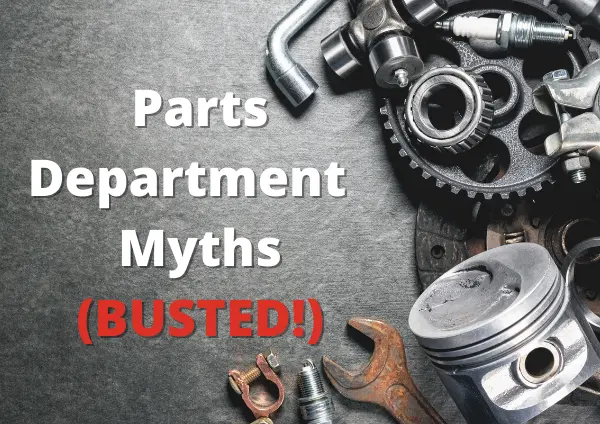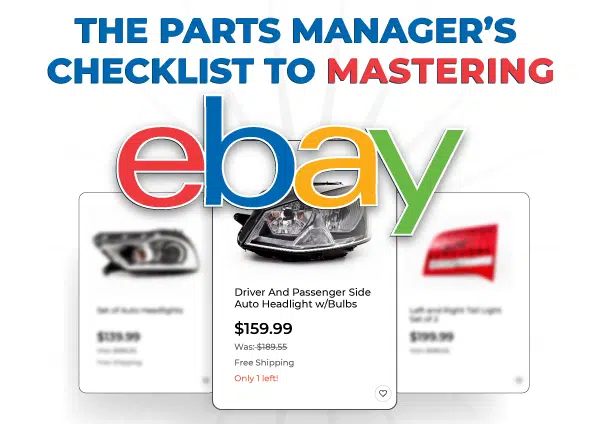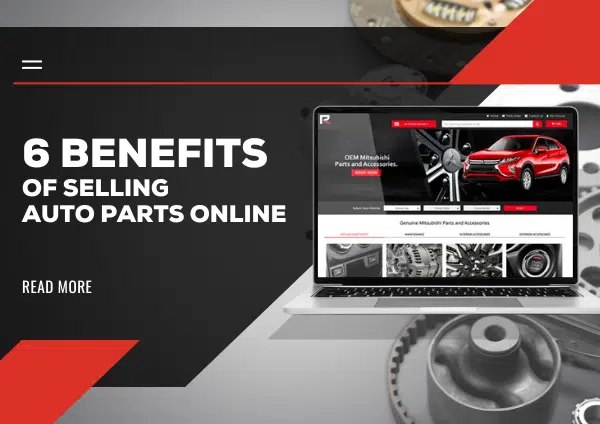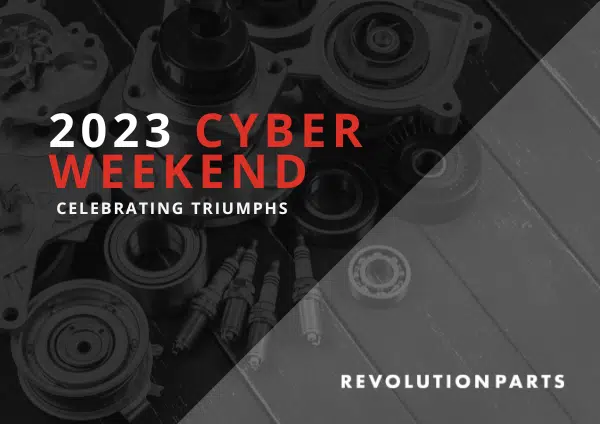A lot of GMs don’t spend enough time with the parts department to understand how everything works. With so much focus on vehicle sales, the parts and service department ends up taking a backseat to dealership operations.
It ends up hurting the dealership as a whole since these departments can’t operate as efficiently as they could if more time or effort was spent on them. Fixed operations can help cover dealership costs, making the process of selling cars easier. It’s all connected.
It’s time to face the facts; parts are valuable for sales and profit. We’re debunking some of the most common myths about the parts department.
Myth #1: The parts department can’t be profitable.
Vehicle sales at the dealership bring in a great deal of profit. As a result, GMs like to focus on vehicle sales the most. However, that doesn’t mean the parts department can’t add value to the dealership’s profits.
Online parts sales can be a brand new profit center for the dealership. The average dealer in the RevolutionParts family increased their parts revenue by 27% in 2020. Monthly parts revenue for dealers averaged at about $34,000 too. These top-performing dealers aren’t reaching numbers like that through chance.
⭐ Download the 2020 Pars eCommerce Year in Review to see the full report
Instead of a strict focus on vehicle sales, these GMs communicate with Fixed Ops and give the parts department the attention it needs to be successful.
Myth #2: A website is enough to get new customers.
The internet is so large that it’s rare for a new website to go up and be easily found by new customers. Often GMs will pay to have the site set up, only to be disappointed by the lack of sales and decide that it was a bad idea to sell auto parts online.
Setting up an online store is half the battle for selling online. Your website can be profitable with a successful marketing strategy and budget that focuses on SEO and PPC with some work. As long as there’s some way to spread the word about your parts site and make it easier for customers to find you, sales are likely to improve.
If you don’t want to handle marketing yourself, RevolutionParts can handle it for you. We offer marketing services that help our customers:
-
- Improve your site SEO
- Get help with email marketing
- Create PPC ads that deliver results
- Get reports to track your progress
Myth #3: Your average customer doesn’t care about the parts department.
The parts department isn’t always customer-facing and t’s not constantly interacting with the public as the sales team does. In fact, since the service department is typically the parts department’s best customer, GMs tend to think it’s okay to ignore parts as long as service is running efficiently.
But when customers purchase their car from the dealership, you want to maintain their loyalty to your dealership. Ideally, that customer will rely on your dealership’s parts and service departments for vehicle maintenance.
If a customer’s car needs maintenance, but the parts department doesn’t have the right parts on hand, you will end up with a frustrated customer. Likewise, if the parts department takes too long to find a part or ends up bringing the wrong part entirely, you might lose that customer’s business for good. GMs need to keep the parts counter well-staffed, trained, and stocked with in-demand parts.
Your parts department is also a great place to promote and sell accessories. Over 80% of new car buyers accessorize their vehicle within the first 120 days of ownership. Most of these customers will begin searching for these accessories online, where aftermarket accessories are abundant. Give those customers an easy way to purchase OEM accessories from your parts department, including selling those accessories online.
Myth #4: Parts can be sold online at retail prices.
Without much experience online, management sometimes believes that selling online is the same as selling over the parts counter. However, your online store and your parts counter are two entirely separate spaces. This means you’ll have to change your pricing strategy to reflect those differences.
If you price the auto parts on your parts website at retail prices, you won’t make many sales—if any. Online, you’re competing with marketplaces like Amazon and eBay, and you are competing with aftermarket parts and accessories. Even though you don’t have to set prices as low as Amazon’s, you should be conscious of the difference and try to price competitively.
Instead of “list pricing,” think along the lines of “cost-plus pricing.” Even a few percentages of difference in the cost + % pricing strategy can significantly impact your sales.
Myth #5: Online customers are a lower priority.
If a customer walked up to the parts counter and had to wait for several hours before being helped, how do you think they’d rate their customer service experience while at your dealership?
Upper management tends to consider online customers a lower priority. If it’s a busy day at the parts department, they’ll insist that you focus on the in-store customers and wait a few days on the online portion. They might even restrict handling online orders to one or two days a week instead of making it a daily task.
Your online storefront should be treated like an in-store storefront when it comes to customer service.
However, there is a bit more flexibility when selling online. You don’t need to fulfill orders within 20 minutes of receiving them. You don’t need to constantly hit “refresh” on the browser in case someone stopped by. Check your orders periodically and make this habit part of your daily schedule! Ideally, you can check your online orders at least twice a day: once in the morning and at night.
If you don’t have the manpower to give ALL your customers the attention they deserve (both online and offline), then it’s time to hire more staff.
Start Busting These Parts Department Myths!
There’s a lot that goes on in the parts department, both in-store and online. Both customer groups are important to build relationships with and matter to the well-being of your entire dealership. Schedule a demo today and learn how RevolutionParts can help your parts department bust these myths and start selling more parts.





